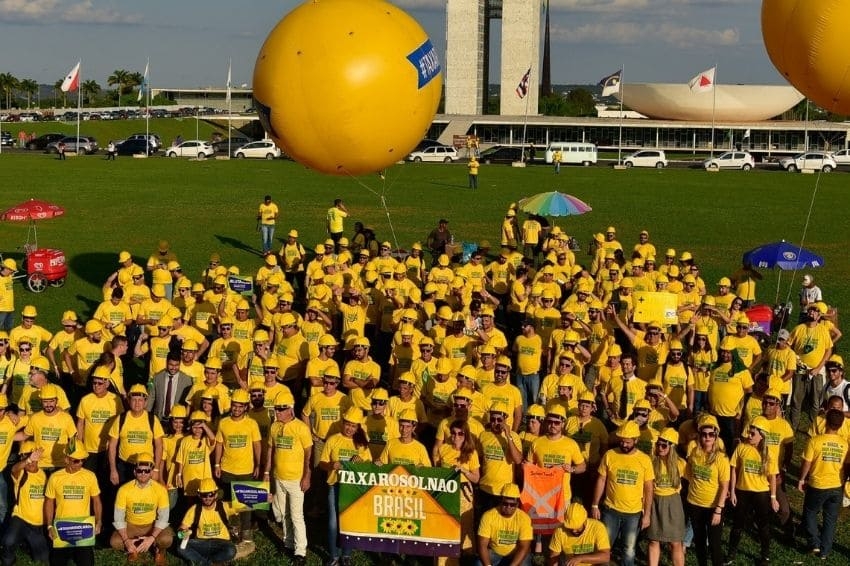“Ninety-nine percent of our efforts are focused on paths that take us so that PL (Bill) 2215 is enacted this year. This is our fight, our focus.” This is the statement of Anaibel Novas, vice-president of MSL (Movimento Solar Livre), a group that fights for the free use of solar energy in the DG (distributed generation) model.
The executive participated in the podcast Papo Solar and commented that the approval of PL 2215 is vital for facing the crisis caused by the Covid-19 pandemic, as energy savings are essential for the survival of small and medium-sized businesses.
“PL 2215 brings legal certainty. And it also has the advantage of being created by installers, integrators, by the people who make it happen. We received several contributions to improve the entire content of this law. We used all this content, which improved our conditions to have stable business”, said Anaibel.
Bill 2215/2020 was presented on March 27th of this year by federal deputy Beto Pereira (PSDB/MT). The proposal aims to establish an energy compensation system between micro and mini producers and the electricity grid.
According to the text, the idea is to propose a rule for this compensation regarding the flow of energy transferred to the network and that consumed by the production unit. The PL will still be discussed by the Chamber and the Federal Senate.
Creation of PL 2215
Executive Hewerton Martins, president of Movimento Solar Livre, also participated in the podcast and explained how PL 2215 was created, developed by several collaborators.
“We managed to extend the taxation of solar energy last year, after an army of helmets and yellow shirts invaded Brasília on November 7, 2019. This mobilization, of almost a thousand people, generated a political buzz. And that’s when we decided to form a partnership”, reported Martins.
“Me, Anaibel and Jomar Britto donated our time to gather information. When March came, we had expectations with a bill. But this text did not appear. So, Jomar and I traveled to Brasília and went to the technical part of the Congress, who guided us on the issue of the text, how it was done and the script we should follow, even in terms of content so that it would be viable. Based on this guidance, we focused on PL 2215, which was born with the contributions of several people. We exchanged ideas with lawyers, tax experts and even directors of energy concessionaires”, said the entrepreneur.
“With this dialogue, we managed to arrive at the text of PL2215, which is more simplified. Everyone knows that after it is set, there are substitutes, there are amendments. So, when deputy Beto Pereira filed the PL in March, and we made an effort to obtain an urgent request, with 348 signatures, it was a victory. It was the first step”, he added.
Martins commented that, however, many people made several contributions later. And these contributions became a substitute text, which was treated by deputy Rodrigo Agostinho (PSB), in the form of an amendment, which is the Amendment 175 of MP998/2020.
“But a provisional measure can fall within 120 days, and then nothing happens. Therefore, we have two paths. The amendment and our work regarding PL 2215 continues to be discussed”, he concluded.
About Free Solar Movement
The Free Solar Movement fights for the democratization of clean and renewable energy and free access to solar energy. He is known for being non-partisan, having a broad and liberal view of politics, economics and customs.
“The movement managed to unite several ends of the production chain. People had a voice, they were able to put their needs on the agenda. They understood that they had to be the protagonists of the story, that they could protect themselves from a unilateral action by ANEEL (National Electric Energy Agency), without listening to the broad voice that runs from north to south of Brazil”, said Anaibe Novas.
Jomar Britto, vice-president of the MSL, also highlighted that the group is open to wanting to make a difference. “We, organically, understood the importance of embracing those who did not see themselves represented and needed strength. The yellow helmets are a unique representation of those who are on the roof, changing the characteristics of our energy matrix and bringing greater generation of jobs and income to the country”, highlighted Britto.
'Sun will not be taxed'
This Thursday (17), President Jair Bolsonaro participated in the inauguration of the Coremas III photovoltaic plant, in Coremas (PB) and stated that there will be no taxation of the Sun during his government.
“Obviously, we know that the agencies are independent and have a very important value for us, in Brazil. Logically, talking to the minister and the president of ANEEL, we came to the conclusion that this proposal, until 2022 when we will be in government, will not be put into practice. There will then be no taxation of the Sun,” said Bolsonaro.
{loadmoduleid 254}
{loadmoduleid 317}
{rfbcomment}100%{end-rfbcomment}
















